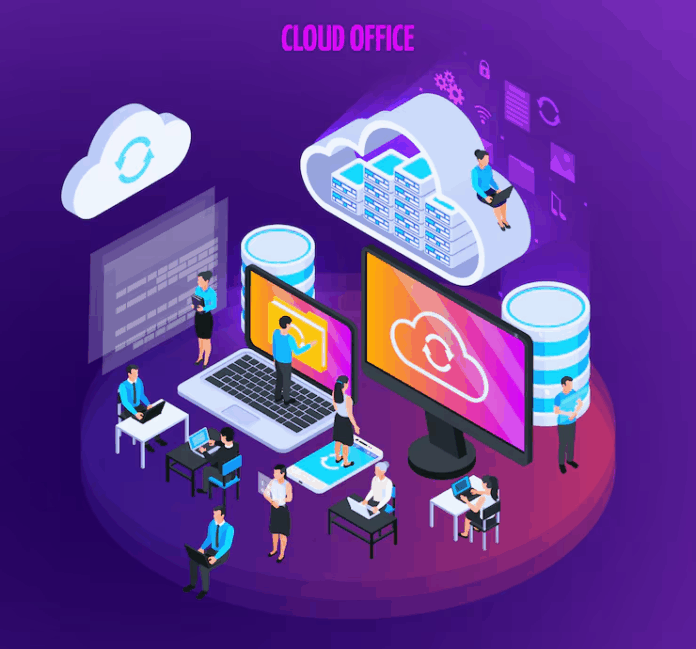What’s the one thing most small business owners dread?
No, it’s not finding new customers or even social media marketing. It’s accounting.
The spreadsheets, the receipts stuffed in shoeboxes, the late-night calculator marathons, it’s enough to make any entrepreneur wish numbers would magically balance themselves.
Take Lisa, a graphic designer. She started her home-based design studio full of excitement. But soon, she realized her “final-final” Excel sheet wasn’t just stressful, it was dangerous. A single crash nearly cost her months of financial data. That was her breaking point. But today, after shifting to cloud accounting, she manages her clients, invoices, and expenses quickly.
In this article, we will explore the transformation in the working process due to cloud-based accounting software for small businesses.
1. Your books travel with you
Running a small business today is not about sitting at the same desk from 9 to 5. You might be on the road meeting clients, working from your kitchen, or grabbing Wi-Fi at a coffee shop. The problem? Your financial records shouldn’t be chained to one computer.
Cloud accounting gives you anytime, anywhere access. Whether you are on a laptop, tablet, or smartphone, your numbers are always with you.
- Imagine sending an invoice to a client right after a meeting—before you even get back home.
- Or tracking expenses while you are traveling, instead of saving receipts in a crumpled pile for “later” (which, let’s be honest, never comes).
Example: Tools like QuickBooks Online and Xero have mobile apps that let you snap photos of receipts, categorize expenses instantly, and even check cash flow in real time.
This level of flexibility doesn’t just save time—it frees you from the old-school accounting “desk jail.”
2. Real-time numbers = Real-time decisions
Picture this: You want to know if you can afford to hire a new freelancer. But your books are updated only once a month by your accountant. That lag could mean making decisions on outdated data—yikes.
Cloud accounting solves this by giving you real-time updates. The moment you record a transaction, it reflects across your dashboard, reports, and cash flow.
Why does this matter? Because in a small business, timing is everything:
- Should you accept that big project with upfront costs?
- Can you run a holiday discount without hurting your bottom line?
- Is it time to invest in new equipment?
With real-time numbers, you don’t guess—you know.
Example: Platforms like Zoho Books offer real-time dashboards showing sales trends, expenses, and pending invoices. This helps in making more intelligent decisions.
3. Safety first: Your data is more secure than you think
Here is a confession: many small business owners avoid cloud accounting because they worry, “What if my financial data gets hacked?”
Valid concern, right? But here is the truth—your old desktop file or paper receipts are way more vulnerable than encrypted cloud servers.
So, here is the thing for you to consider and think about:
- What if your laptop gets smashed or stolen?
- What if your outer hard drive stops functioning?
- What if your office (or home office) encounters fire or water damage?
Cloud systems protect your data with:
- Encryption (scrambling your info so only you and authorized users can read it)
- Automatic backups (so even if your device dies, your data lives on)
- Two-factor authentication (extra login security beyond just a password)
Example: Wave Accounting offers bank-level security and automatic backups. That means even if your laptop gets knocked over by your toddler’s juice box, your data is safe and sound.
So yes, cloud solutions aren’t just convenient—they are safer.
4. Collaboration without the mess
Handling a small firm doesn’t mean you are alone. You may have an accountant, bookkeeper, or even a virtual assistant helping you. What else do you need? Traditionally, this meant sending endless email attachments: “Final-v2.xls”… “Final-FINAL-v3.xls”… sounds familiar?
Cloud accounting fixes this headache. Multiple users can work on the same data simultaneously—without version confusion.
- Your bookkeeper logs expenses.
- Your accountant prepares tax reports.
- You check the cash flow.
All from the same platform, in real time.
And guess what? You control permissions. Do you want your accountant to see everything, but your assistant to access only invoices? Easy.
Example: FreshBooks shines in client collaboration. You can mail estimations, handle invoices, and even allow clients to approve proposals, all within the same single platform.
This sort of teamwork approach retains everyone on the same page, literally.
5. Scalability: Grow without growing pains
Here’s an oversight many small companies make: selecting a tool that only performs for them “right now.” But what happens when your business expands? Abruptly, you are switching systems, migrating data, and losing time.
Cloud accounting grows with you. Begin with the basics (income + expenses) and subsequently count elements like:
- Payroll
- Inventory management
- Multi-currency billing
- Tax compliance tools
Example: QuickBooks Online has tiered plans—so you can start small, then upgrade as your business expands with no messy transitions.
Scalable systems mean your accounting never becomes the bottleneck in your growth. Instead, it becomes the engine that supports it.
Bonus: It saves you money, too
Let’s not forget the bottom line: Cloud accounting often costs less than traditional setups. No need for significant upfront software purchases, expensive IT setups, or hiring a full-time accountant when you are just starting.
Subscription plans are flexible—pay only for what you need. For home-based and small businesses, that’s a game-changer.
Final thoughts
Running a small business is tough, but cloud-based accounting software helps you work smarter, protect your data, and support growth.
You get these perks:
- Gain flexibility (work from anywhere).
- See real-time insights (make faster decisions).
- Get top-notch security (peace of mind).
- Collaborate seamlessly (no more email clutter).
- Scale smoothly (your tools grow with you).
At Home Business Magazine (HBM), we understand what it’s like to balance ambition with the day-to-day grind. That’s why we share strategies, tools, and software solutions for small businesses that help entrepreneurs grow.
If you want to make a switch, then explore platforms like QuickBooks, Xero, Zoho Books, Wave, or FreshBooks. Find the one that fits your style, and start working smarter and safer today.
Keep your numbers in order. Grow your business without any stress or roadblocks.
Find a Home-Based Business to Start-Up >>> Hundreds of Business Listings.

















































